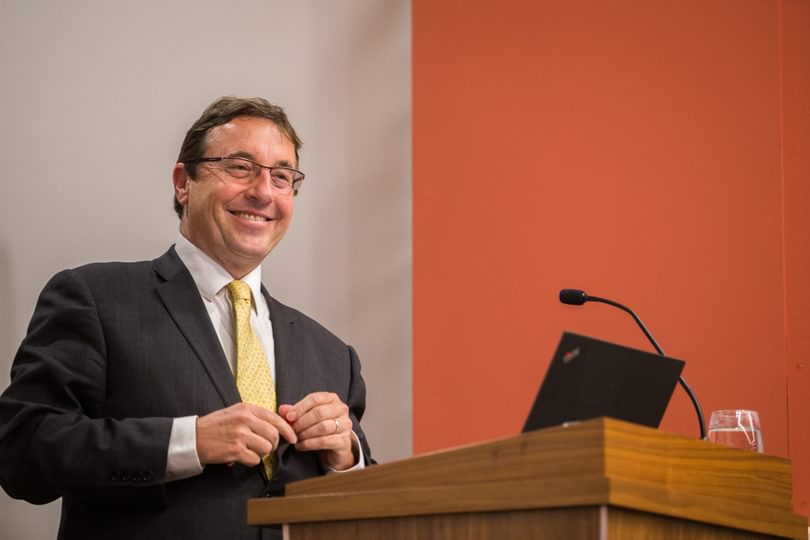
In his inaugural lecture at the Oxford Martin School, Achim Steiner stressed the need to align economic systems with societal and cultural values, in order for the world to move towards an inclusive ‘green economy’.
Mr Steiner, who became the School’s new Director in September, used his lecture to outline the challenges of a global transition towards a more environmentally sustainable model of economic growth.
“Much of what is happening in our world today, and how we reach decisions, is transacted through an economic discourse” he said. “One of the greatest challenges we are facing right now is that this discourse, or the so called ‘rules of the game’ - how globalisation and world trade works - is no longer in line with the political, cultural and social choices and realities of too many people on this planet.”
He said a global population in excess of ten billion, expected within three decades, would only be manageable if the right choices were made globally in the intermittent period. “Unprecedented and exponential” growth in world population, carbon dioxide emissions and fertiliser consumption, he said, “redefines the entire challenge of how to manage our existence, collectively, in sharing this planet with one another.”
He criticised the continued use of GDP as “a deeply flawed yardstick for defining economic progress”, and went on to stress that, in an age of ever-increasing workplace automation, a green economy must address the need for job growth.
Concluding on an optimistic note, he urged society not to “over-focus on the events of yesterday at the expense of what could happen tomorrow”, and to “look at the bigger picture, taking the green economy as one prism through which to look at the fundamental and profound shifts that are happening.
Watch the full lecture below